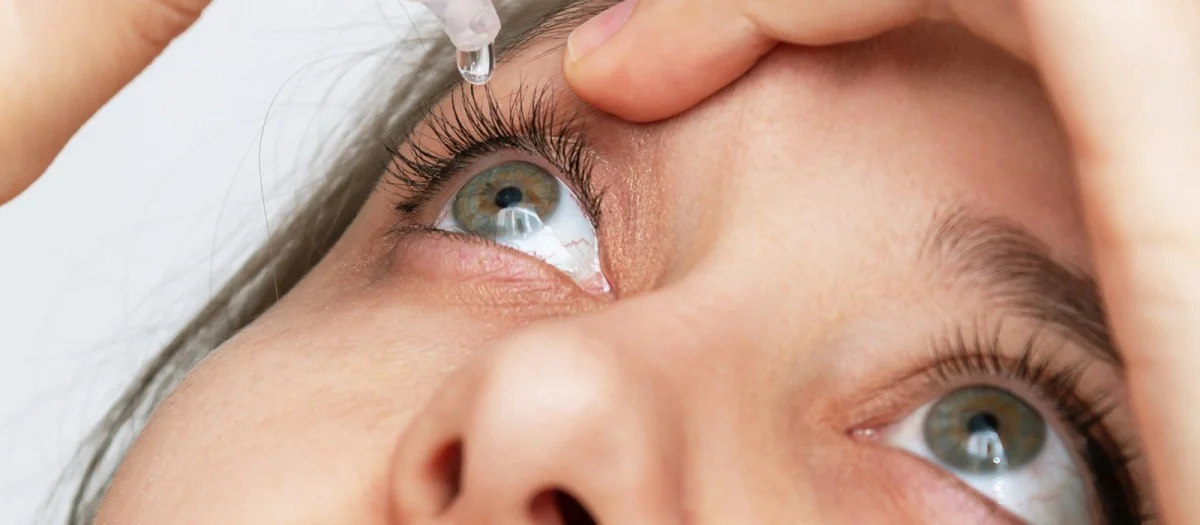08/09/2024
08/09/2024

NEW YORK, Sept 8: Dry eye syndrome requires a strategic approach to management. Fortunately, simple adjustments and natural remedies can often provide relief. Effective self-care for dry eye syndrome includes the use of daily eye drops, dietary changes, supplements, and other modifications.
Dry Eye Self-Care Routine
Daily Drops and Moisturizers Dry eye syndrome is characterized by insufficient tear production or poor-quality tears that evaporate too quickly. Over-the-counter lubricating eye drops, known as artificial tears, mimic natural tears and can provide relief. For more severe cases, thicker gels or ointments might be necessary. Consult an ophthalmologist or optometrist to choose the most suitable products and determine the appropriate usage frequency.
Apply a Warm Compress Using a warm compress can help stimulate the oil glands around the eyes, aiding in moisture retention. Regular cleaning of your eyelashes can also be beneficial.
Digital Habits Digital screen use can exacerbate dry eye symptoms by reducing blink rates, which leads to faster tear evaporation. To mitigate this:
- Take breaks from screens periodically.
- Use artificial tears and maintain a humidifier in your workspace.
- Limit contact lens wear and opt for glasses during prolonged screen use.
- Position your computer screen below eye level to reduce tear evaporation.
Changes in Your Environment Minor adjustments in your daily environment can help manage dry eye symptoms:
Diets and Supplements Dietary choices can impact dry eye management, although evidence on specific benefits is mixed. Omega-3 fatty acids in fish oil supplements have not shown consistent benefits, according to the American Academy of Ophthalmology. However, consuming omega-3-rich fish like salmon, tuna, and sardines is part of a balanced diet. Ensure adequate hydration to prevent dehydration, which can worsen symptoms.
Handling Dry Eye Frustrations
Dry eye syndrome can also affect emotional well-being. To address these challenges:
- Seek psychological support if experiencing depression.
- Consult with a healthcare provider about antidepressant or anti-anxiety medications.
Role of Specialists in Self-Care
While self-care measures are crucial, they may not always be sufficient. An eye specialist (ophthalmologist or optometrist) can offer more targeted treatments:
- Steroid drops, like Eysuvis (loteprednol), can reduce inflammation but are typically used for short periods due to potential side effects.
- Tyrvaya (varenicline solution) nasal spray can stimulate tear production with less irritation compared to eye drops.
- Punctal plugs may be inserted in the eye’s inner corners to retain tears.
- Special large custom contacts may be prescribed to maintain moisture and protect the corneal surface.
Terminology
The condition is referred to by various names, including dry eye syndrome, dry eye disease, and keratoconjunctivitis sicca. All terms describe a condition where tear production is insufficient or tears are of poor quality, leading to symptoms such as burning, itching, and irritation.
Balancing Medication Side Effects
While medications can offer significant relief, they may also cause side effects. For instance:
- Xiidra can lead to an unusual taste or irritation in about 25% of users.
- Steroids might increase eye pressure, leading to conditions like glaucoma or cataracts, delayed wound healing, and a higher risk of infection.
If a medication causes severe side effects, your ophthalmologist may suggest alternative treatments.
Managing dry eye syndrome involves a combination of self-care strategies, environmental adjustments, and potentially prescription treatments. By making these changes, you can improve your comfort and quality of life.


